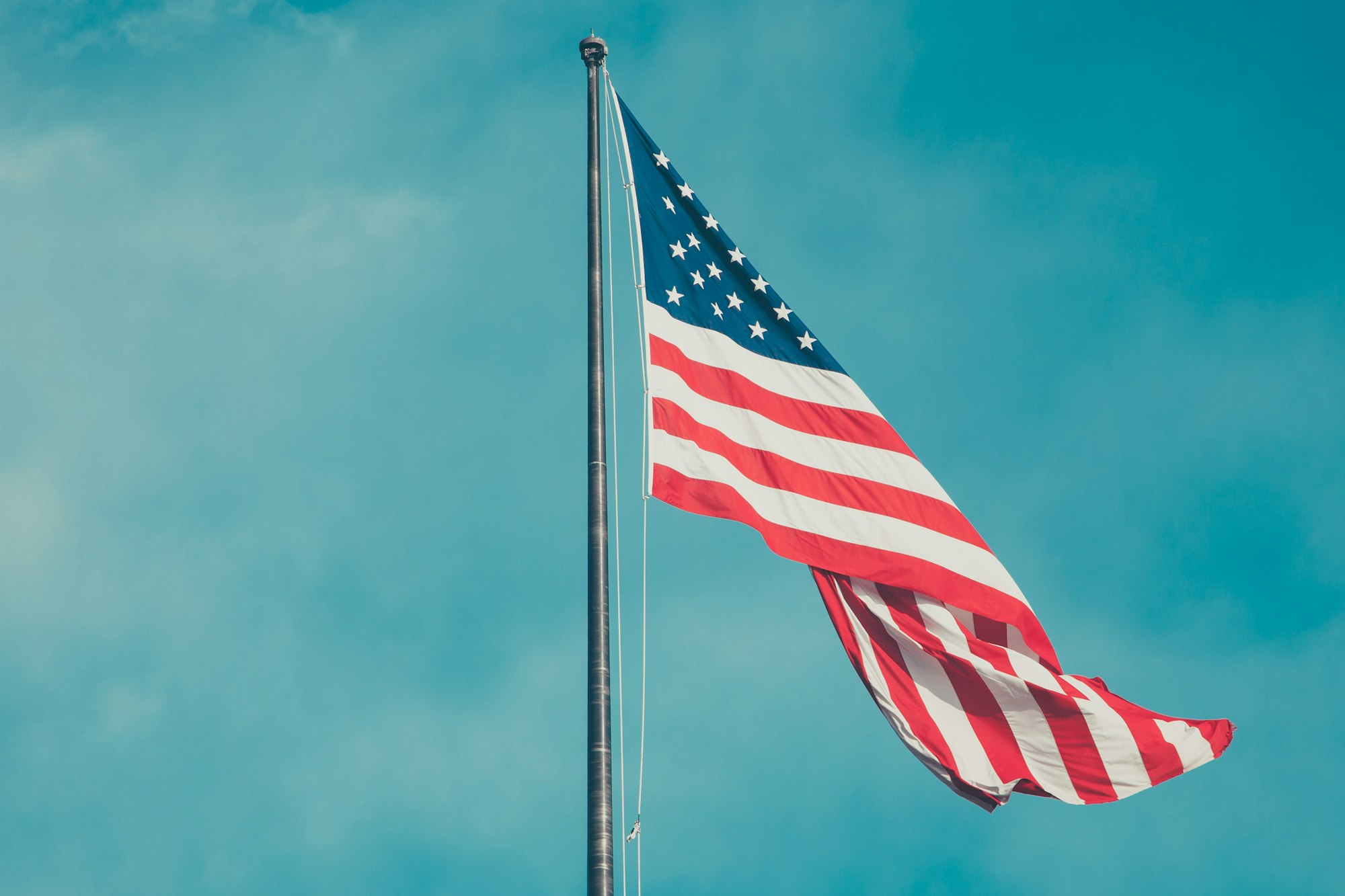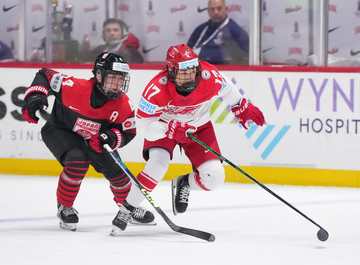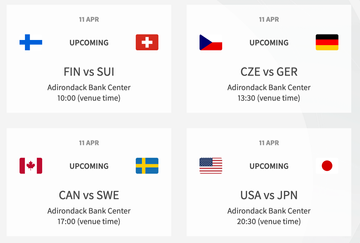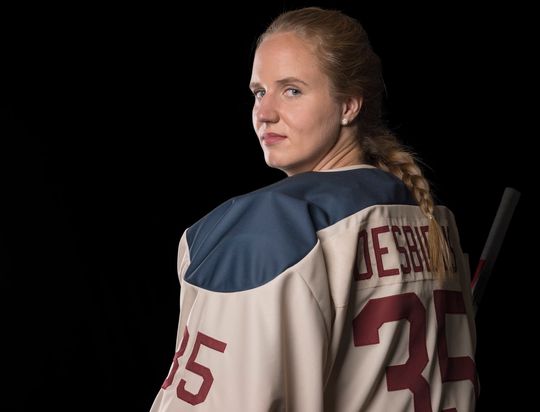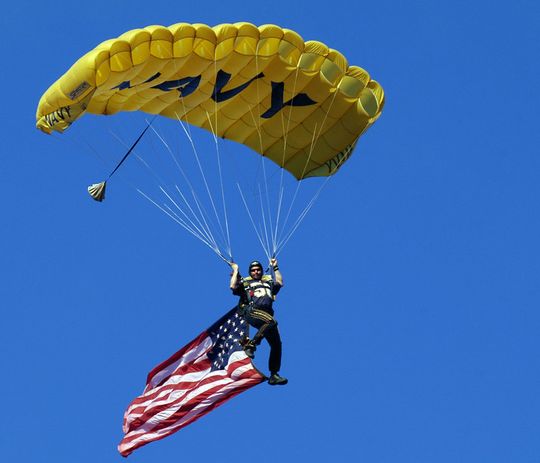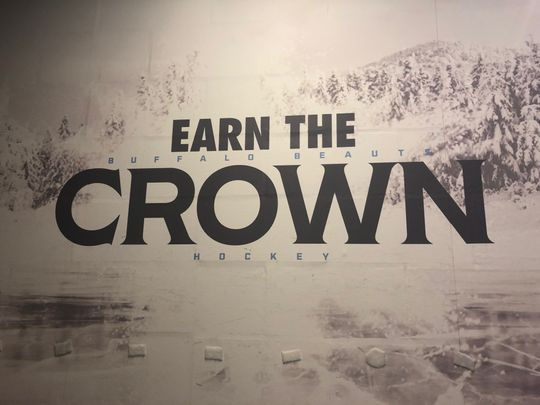It's another IIHF Women's World Championship and while TSN's coverage of the tournament has improved dramatically in recent years, American viewers are continuing to be left behind in the exponential growth of women's hockey.
It's still difficult to watch, as a Stateside viewer must subscribe to ESPN+ and a cable package that includes NHL Network to be able to watch every game. And if they do make that investment, they are then willfully exposed to an abysmal NHL Network-produced studio show which does not include any women's hockey experts or valuable commentary. The insights provided by the NHL Network panelists are often dreadfully boring even when they're discussing the men's game, so to ask them to comment on the women's game where their knowledge very clearly only encompasses the media sheet handed to them by USA Hockey – well, let's just say it's even worse.
To be clear, NHL Network carries the TSN broadcast feed of the games, and even shows their intermission studio content – except when Team USA is playing, when they insist on running their own studio show. Paradoxically, then, American viewers receive a poorer level of analysis on the program that should be of the most interest to them. During games that don't involve Team USA, NHL Network and ESPN+ carry TSN's strong studio show, featuring former women's hockey players as analysts and hosts, such as Tessa Bonhomme, Megan Bozek, Sami Jo Small, and Becky Kellar, also sometimes joined by TSN anchor Laura Diakun. Small occasionally joins as a color analyst alongside Kenzie Lalonde or Daniella Ponticelli on the play-by-play, though the main color analyst being used in the tournament is the inimitable Cheryl Pounder. The broadcast is supplemented with rinkside interviews by Raegan Subban and Julia Tocheri.
Back at the 2021 IIHF Women's Worlds in Calgary, TSN was still using Rod Black as its main play-by-play announcer, and its studio content was not nearly as expansive. But starting with the 2022 U18 tournament, TSN completely overhauled their international women's hockey coverage – and it's been a resounding success. It's also raised the standard significantly, which is why it's so glaring that the situation in the United States is so woefully behind. NHL Network has the broadcasting rights to USA Hockey's content but doesn't make production choices to showcase them, wedging intermission recaps into NHL highlight packages that feel more like fifth-grade book reports than actual hockey analysis.
While studio host Jamie Hersch has been steady, and an appearance during the USA/Czechia tilt this tournament by Kevin Weekes provided enjoyable analysis, the negatives have far outweighed the positives. NHL Network has been leaning heavily on former NHL player Steve Konroyd for its group stage broadcasts of Team USA, and the results have been truly depressing. Konroyd barely knows any of the players' names, and accidentally called USA goalie Aerin Frankel "Bethenny" (like the Real Housewife) during the USA/Canada game on Monday night. Konroyd quickly corrected himself, but this gaffe felt especially insulting.
bethenny frankel pic.twitter.com/K25EMrEoPE
— zoë (@zoeclaire_) April 9, 2024
The lack of preparation and lack of deep knowledge about the women's game is extremely obvious in much of NHL Network's broadcast. Even if you don't know the women's game well yourself, the rambling, muttering, and lack of specific insight tells the whole story.
The fact remains that even if NHL Network were doing their own play-by-play broadcasts and studio show, and it were somehow excellent, TSN has a much higher profile in Canada as a sports channel than NHL Network has in the United States. TSN is a national sports channel commonly available in many basic cable subscription packages. NHL Network is rarely part of basic cable in the United States, if at all, and is usually part of a premium subscription or sports add-on package which is prohibitively expensive for many people.
The PWHL has had its own trouble getting women's hockey on a national stage in the US. Its American market games are broadcast on regional sports networks while its Canadian teams are broadcast on national channels like TSN, Sportsnet, and CBC. In a way, this makes sense, since hockey is ultimately Canada's most popular sport and is considered a part of Canada's national identity. In the United States, hockey is more niche.
But the sport already has a built-in method of growing its popularity here: having the perennial best or second-best team in the world. Ultimately, it's USA Hockey's responsibility to grow the sport and highlight its athletes on a national and world stage – and the current situation with broadcasting isn't going to cut it. Hosting the tournament on home soil in Utica, with the reigning World Championship gold medalists favored to defend their title, should have been an opportunity for USA Hockey (and NHL Network, if that is to be our fate) to step up their game. Instead, NHL Network's presentation of the United States women's national ice hockey team feels like a shoehorned afterthought.
In 2023, the Aspen Institute's Project Play participation study indicated that sports participation for girls' sports is trending upward, while boys' sports participation is trending downward. In 2022-23, USA Hockey reported 91,254 players registered to play girls' or women's hockey in the United States. But you wouldn't know it from listening to Steve Konroyd:
sorry to subject you to this but I just wanted a record of it happening. Steve Konroy on how "not a lot of girls play sports" pic.twitter.com/HAti1KEFou
— zoë (@zoeclaire_) April 6, 2024
If this was all you watched about women's hockey during the IIHF Women's World Championship, you'd be forgiven for thinking that this tournament isn't interesting or full of dynamic talent, or that the matchups haven't been tough. You wouldn't have any indication that the level of competition continues to get better at this tournament every year – that every game is an absolute blast to watch. By limiting the game's exposure in this way, USA Hockey is failing to get its on-ice product in front of thousands of eyeballs who could fall in love with the game – and not just because of Team USA, but because of the talent and stories from throughout the IIHF Women's Worlds.
This problem is not unique to hockey. We just saw the women's basketball NCAA tournament set a record for the most-watched women's basketball game of all time. As Shakeia Taylor wrote for the Chicago Tribune about the increased hype around that sport:
What we are seeing today — the social media discourse, women's hoops being the lead story on national sports programs, sold-out arenas and players declaring for the WNBA draft in Vogue — is the result of increased visibility. We can see the star power of these young women.
With the PWHL presenting pro women's hockey in a polished, modern style, with better broadcasting than ever, and with TSN setting an example of how to present the international game, NHL Network has, so far, made little use of this opportunity to really showcase the women's game in the United States. And this was the time to do it, with the games airing in a time zone where they can be watched live by American audiences. Next year's IIHF Women's Worlds will be in Czechia, and the next Winter Olympics will be in Milan and Cortina d'Ampezzo, Italy. It's not yet clear when the United States will host another IIHF women's tournament – U18s next year are in Vantaa, Finland. Hockey Canada has increased its commitment to international women's hockey and Canada will play host to the U18 tournaments in 2026, 2028, and 2030. They will also host the senior tournament in 2026 and 2030. USA Hockey's renewed commitment to the women's game, famously squeezed out of them during the 2017 World Championships boycott, feels like it is due for a refresh.
There is some cause for optimism. For this World Championships, USA Hockey produced a documentary series called Defending Their Ice, airing on NHL Network during the IIHF Women's Worlds. The final episode will air on April 20 and presumably cover the result that Team USA achieves over the next few days in the playoffs. The documentary is pretty straightforward and doesn't exactly break any new ground, but it is an interesting behind-the-scenes look at the current national team culture and players. It doesn't try to do too much with its premise as it really focuses on the sport itself, the USA-Canada rivalry (including a recap of this year's reverse sweep by Canada), and the players' own words.
I haven't been able to catch every episode so far, but what I have seen has demonstrated an understanding of the current moment for women's sports. Fans want to see women's sports athletes treated like athletes and get some intimacy with their process – what their training is like, what their mentality is like. They want to see the personalities behind the game and see the athletes being themselves. Because this is USA Hockey, it isn't the goofy behind-the-scenes fun stuff like we see in the PWHL social media content, for example, but we do get to see players talking frankly about the experience of being with the US women's national team.
In one talking-head interview, Wisconsin forward Casey O'Brien, who ultimately didn't make the final roster for Utica, talked about how she wanted to make the team, but knew that if she didn't, it didn't change anything about what kind of person or athlete she is. That's great insight into the attitude necessary to play at this level, in a highly competitive environment. It's not maudlin or disingenuous. That's how the documentary comes off – it's not overwrought. It does what it says on the tin, but perhaps in a more understated way than you might expect of a national team from one of the most jingoistic countries in the world, a country whose obsessive patriotism often intersects aggressively and uncomfortably with international sport. So far, Defending Their Ice has been a pleasant surprise. I am trying to DVR all of the episodes so I can watch it more completely. Hopefully USA Hockey will make it available online after the tournament concludes.
As we head into the playoffs, NHL Network will carry almost all of the remaining games (with the exception of Canada's quarterfinal matchup with Sweden, which will be on ESPN+). I am curious to see if anything changes between how they handled the group stage versus how they handle the playoffs. It's not too late for them to change the tone of their coverage and shine more spotlight on the sport as Team USA continues their campaign to repeat as gold medalists.
To use an obvious metaphor, this has been a golden opportunity for NHL Network as well – and it'd be a shame if they completely squandered it. In the next couple years, for the Rivalry Series and the World Championships, the stakes are even higher. For the 2026 Milan-Cortina Olympics, we will be forced into a domestic broadcast by NBC, as the exclusive rights-holder for United States Olympic broadcasts. It would be amazing if NBC had the opportunity to hire on-air talent for Milan-Cortina who have experience broadcasting the game for an American audience comprising both newcomers and established fans. This is just free advice. To elevate women's hockey for US-based viewers, the time to do better is now.
(Photo: Anthony Delanoix/Unsplash)
